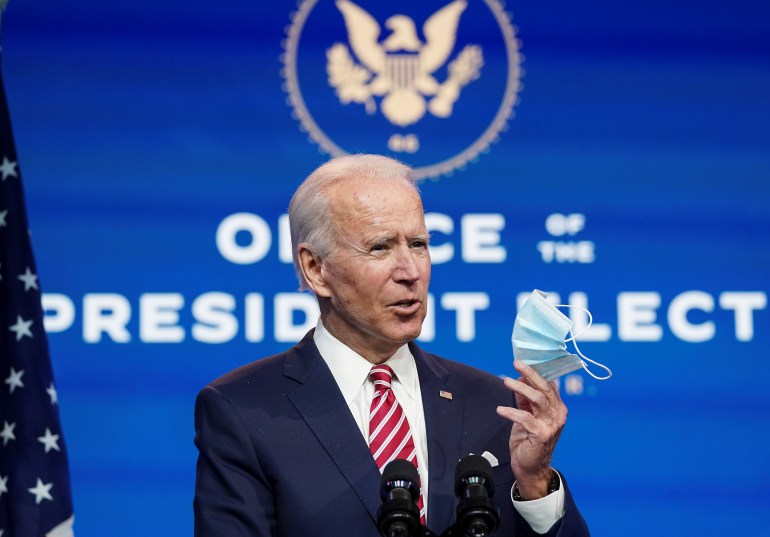As US President Donald Trump spends his last days in the White House, Iran hopes to reach understandings with President-elect Joe Biden.
And after Trump imposed harsh sanctions on Iran and withdrew from the nuclear agreement signed by Tehran and the international powers, it seems likely that Biden will follow a different approach as he was the vice president of former US President Barack Obama, who is credited with reaching the agreement signed in 2015.
Iranian Foreign Minister Mohammad Javad Zarif said that if US President-elect Joe Biden decided to return to the nuclear agreement and implement its provisions, Tehran could return immediately to implement its obligations in the agreement.
Zarif stressed that "Washington has no right to set preconditions, and it has no choice but to return to the negotiating table."
Zarif stressed that his country does not oppose negotiations within the framework of the (5 + 1) group - which includes the permanent members of the Security Council in addition to Germany - and that Tehran is ready for dialogue on Washington's return to the nuclear agreement.
Zarif said that Iran would fully implement the nuclear agreement if US President-elect Joe Biden lifted sanctions on Tehran, indicating that this could happen quickly with "three executive orders."
Biden previously pledged to return the United States to the nuclear agreement if Iran abides by its commitments (Reuters)
Three orders
"If Mr. Biden is willing to fulfill the United States' obligations, we can also immediately return to our full obligations in the agreement," he added in an interview with the official Iran Daily.
"We are ready to discuss how the United States can rejoin the agreement. The situation will improve in the next few months. Biden can lift all sanctions with three executive orders," he said.
"This can be done automatically, without the need to set conditions," Zarif said. "(Only) the United States will fulfill its obligations under Security Council Resolution 2231 and we will implement our obligations under the nuclear deal."
Zarif has not insisted on any compensation from the United States, unlike leaders - such as President Hassan Rouhani - who are demanding compensation to Tehran for the "damage" it suffered as a result of the re-imposition of US sanctions.
Pledge and difficulties
Biden had pledged to return to the 2015 deal if Iran also returned to compliance with its provisions, but diplomats and analysts said it is unlikely that this will happen overnight, because each side will want additional commitments from the other side.
These leaders stress that Washington will pay for the oil revenues that Iran has lost.
The 2015 agreement provides for curbing Iran's nuclear program in exchange for easing sanctions.
But Trump withdrew from the accord in 2018 and imposed tougher, unilateral sanctions on Tehran.
In response to the move, Tehran announced its disavowal of some of the terms of the agreement.
Strike
In a related context, Fox News quoted sources in the White House that US President Donald Trump did not ask to see the options for striking Iran, and that it was the National Security Adviser who asked for the options, but Trump did not want to discuss them.
The New York Times had said that US President Donald Trump inquired of his senior advisers last week about the options available to him to take action against an Iranian nuclear site in the coming weeks.
The newspaper added, citing US officials, that Trump's inquiry came after international investigators reported a marked increase in the stockpile of nuclear materials in Iran.
She explained that prominent advisers - including his deputy Mike Pence and his Secretary of State Pompeo - had warned against striking Iranian facilities for fear of an escalation.
But the newspaper hinted that Trump may still be looking for ways to strike Iran's interests and its allies, including the Iraqi militias.

